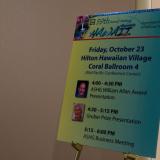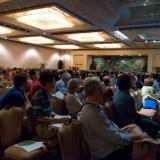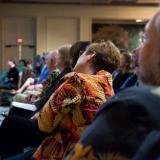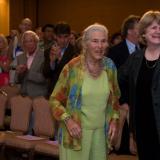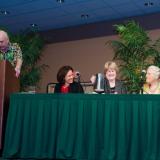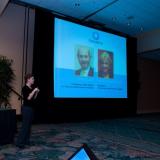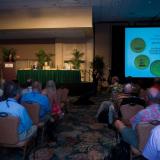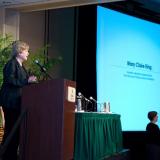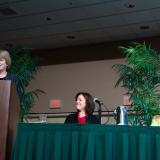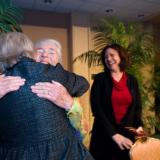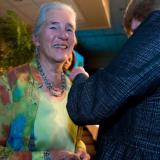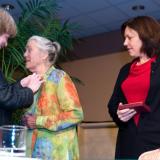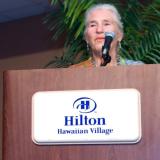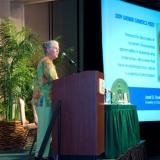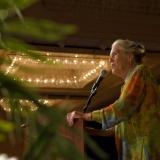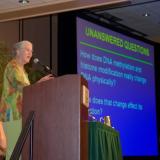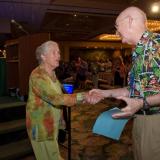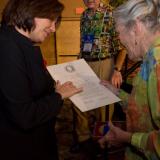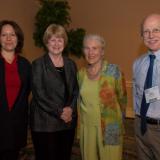2009 Gruber Genetics Prize
The pioneering work of Janet Davison Rowley, MD, in the field of cancer cytogenetics (the study of chromosomes and other cellular aspects of heredity) revolutionized how cancer is understood and treated. In a series of groundbreaking discoveries, Rowley demonstrated that tumors can be triggered when certain genes on chromosomes exchange positions (translocate), thus proving that genetic mutations can cause cancer—a concept that the scientific community had previously dismissed. Rowley has worked primarily with leukemias and lymphomas, but the same translocations have been identified in other types of cancer. Tracking these chromosomal abnormalities has enabled scientists to develop much more effective methods of diagnosing and treating cancer.
2009 Genetics Prize Recipient
Laureate Profile
When Janet Davison Rowley, MD, began her cytogenetics research at the University of Chicago in the 1960s, few other scientists shared her belief that the chromosomal abnormalities of leukemia would reveal anything interesting. “It was generally thought that chromosome abnormalities were a consequence of the cancer, not the cause,” Rowley recalls.
By the mid-1970s, Rowley had turned that established view on its head. She had begun to publish what was a truly remarkable series of studies, including her 1973 landmark finding that the abnormally short “Philadelphia” chromosome that had earlier been identified in hematopoietic cells of people with chronic myelogenous leukemia (CML) was not a chromosome deletion, as many scientists had thought, but an exchange (translocation) of segments between two chromosomes. She soon uncovered many similar translocations in other types of leukemia and lymphoma cells, and then, as new technology became available, began to clone the translocation abnormalities, or breakpoints, of these chromosomes and to identify their oncogenes (the mutated genes that help transform a normal cell into a cancerous one).
By 1980, Rowley had defined the field of cancer cytogenetics—and proven that gene mutations can cause cancer. Now universally regarded as one of the great pioneers of cancer research, Rowley has been the recipient of many of science’s top professional honors, including the Albert Lasker Clinical Medicine Research Prize in 1998 and the National Medal of Science award in 1999. Still insatiably curious, Rowley continues her investigations into the molecular genetics of leukemia at the University of Chicago, where she is the Blum-Riese Distinguished Service Professor and a mentor and inspiration to countless students and researchers.
Citation
The Peter and Patricia Gruber Foundation proudly presents the 2009 Genetics Prize to Janet Davison Rowley, M.D., a founder of the field of cancer cytogenetics and a renowned leader in molecular oncology.
Janet Rowley revolutionized research in the field of cancer biology and the diagnosis and treatment of cancer through her discoveries of specific chromosomal translocations in the leukemias and lymphomas. Dr. Rowley provided compelling evidence that particular tumors are associated with characteristic cytogenetic alterations.
By redefining our fundamental understanding of cancer through cytogenetics, she helped drive the translation of basic genetic discoveries to clinical medicine. In addition, during her illustrious career Dr. Rowley has provided critical leadership nationally and internationally to the biomedical research community.



